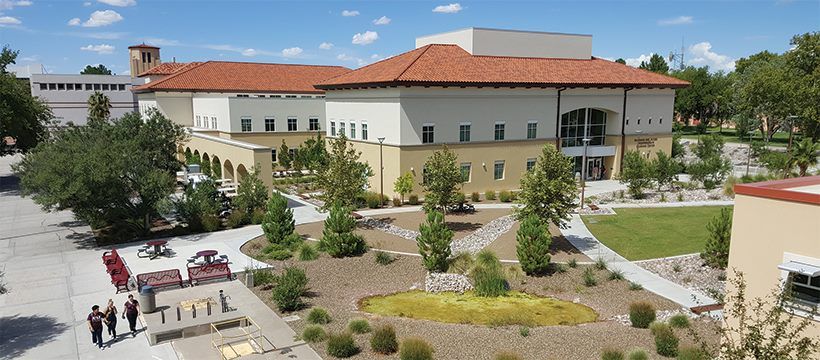16 Best Universities for Metaverse and Web3: Education, Research, Courses


Table of contents
- List of Top Universities for Metaverse and Web3
- Massachusetts Institute of Technology (MIT)
- Stanford University
- University of California, Berkeley (UCB)
- University of Tokyo
- University of Toronto
- University of Waterloo
- GDUT
- Mahindra University
- Nanyang Technological University
- Korea Advanced Institute of Science and Technology (KAIST)
- New Mexico State University
- University College London
- University of Maryland Global Campus
- Sabancı University
- University of Pennsylvania
- University of Cincinnati
- FAQ
- Conclusion
The Metaverse is a user-created virtual world that exists on the internet. It is a 3D world that can be explored and interacted with by users. Web3 is the next generation of the internet, which will allow users to interact with the Metaverse using decentralized applications.
The learning journey of the user is made more pleasurable and simple. It makes learning enjoyable and simple, as well as improves problem-solving skills. It also improves the user’s overall educational experience by providing real-time feedback.
The Metaverse is constantly expanding and evolving. New features and applications are being added all the time. This makes it an exciting and ever-changing environment to explore and learn in.
Web3 is still in its early stages of development. However, there are already a number of universities that are beginning to offer courses on web3 and the Metaverse.
List of Top Universities for Metaverse and Web3
The following is a list of the 16 best universities for metaverse and web3 development:
Massachusetts Institute of Technology (MIT)

This is one of the most prestigious universities in the world and is also MIT IS leading research institution. MIT has a long history of innovation and is home to some of the world’s top scientists and engineers. The university is also a major center for the development of web3 technology.
Stanford University

This university is located in Silicon Valley, which is the global center for tech innovation. Stanford is home to many of the world’s leading tech companies and startups. where it can be used in the real world.
University of California, Berkeley (UCB)

UCB is one of the leading public research universities in the world. The university is located in the Bay Area, which is a major hub for tech innovation. UCB is home to many leading researchers in the field of web3 technology.
University of Tokyo

This university is located in Tokyo, Japan, and is one of the leading research institutions in Asia. Considering Japan is one of the most technologically advanced countries in the world, it’s no surprise that The University of Tokyo is a significant player in the development of web3 technology.
University of Toronto

This university is located in Canada and is one of the leading research institutions in the world. The University of Toronto is home to several world-renowned scientists and engineers. The university has a strong focus on interdisciplinary research and is also a significant center for developing web3 technology
University of Waterloo

This university is located in Canada and is one of the leading centers for research in blockchain technology. The University of Waterloo is also a significant center for the development of web3 technology.
GDUT

GDUT is a provincial university in Guangdong, China, offering courses in engineering, science, technology, management, liberal arts, and law, with a strong emphasis on engineering. Researchers at the university have established it as a Metaverse research center, with publications such as “Reliable Coded Distributed Computing for Metaverse Services: Coalition Formation and Incentive Mechanism Design” and “Optimal Targeted Advertising Strategy For Secure Wireless Edge Metaverse.”
Mahindra University

Tech Mahindra already operates ten Makers Labs throughout the world, and the new location at Mahindra University will be the 11th and second in Hyderabad. Tech Mahindra and Mahindra University have struck an agreement to establish a new ‘Makers Lab’ for quantum computing, explainable artificial intelligence, and Metaverse research and development.
Nanyang Technological University

Nanyang Technological University (NTU), a national research university in Singapore, is one of the country’s oldest and is consistently ranked among the world’s best universities. It maintains its dominant position in Metaverse research. Recent NTU research includes serious technological investigations into the Metaverse, such as “Reliable Coded Distributed Computing for Metaverse Services: Coalition Formation and Incentive Mechanism Design,” as well as an examination of the business aspects of Web 3, such as “Optimal Targeted Advertising Strategy For Secure Wireless Edge Metaverse.”
Korea Advanced Institute of Science and Technology (KAIST)

When Creators Meet the Metaverse: A Survey on Computational Arts and All One Needs to Know about Metaverse: A Complete Survey on Technological Singularity, Virtual Ecosystem, and Research Agenda are two recent projects that KAIST researchers worked on that resulted in papers on the Metaverse.
New Mexico State University

In order to introduce the technology to classrooms across the NMSU system, New Mexico State University is collaborating with EON Reality, a pioneer in knowledge and skill transfer based on augmented and virtual reality. The EON-XR platform will initially be included into a few classes at Doa Ana Community College, with plans to eventually expand to the main campus of NMSU.
University College London

The second-biggest institution in the United Kingdom by total enrollment is University College London (UCL), which also has the greatest postgraduate enrollment. UCL, a federal University of London member institution, is a pioneer in research in the UK. It hosts faculty members and students interested in Metaverse scholarly research. A recent example is Jean-Philippe Vergne’s critique, “The Future of Trust will be Dystopian or Decentralized: Escaping the Metaverse,” in which he argues that “the future of trust will be dystopian or decentralized: escaping the metaverse.” Vergne is a scientist at UCL who focuses on “how socially contested organizations affect the birth and renewal of industries operating at the vanguard of capitalist economies.”
University of Maryland Global Campus

In a partnership with VictoryXR, a world leader in building learning environments through immersive technology, University of Maryland Global Campus (UMGC), a pioneer of online education with a history of investigating cutting-edge learning solutions, will use virtual and augmented reality in classes during the fall semester.
Sabancı University

Sabanc University was founded in 1994, not far from Istanbul, making it a relatively new institution. In 1999, the school’s first students graduated. This very small university has become a leader in emerging technologies like Web 3 tech, which may be partly due to its young. Eight research papers on the Metaverse have been written by the university. Elif Ayiter, a researcher and designer, is one of those researchers. Ayiter serves as the journal Metaverse Creativity with Intellect Journals’ principal editor.
University of Pennsylvania

“Business in the Metaverse Economy” is a six-week Metaverse course being offered by the Wharton School at the University of Pennsylvania. The program is intended for business and technology professionals. To create the course’s materials, the University of Pennsylvania collaborated with the tech-focused consulting firm Prism Group. The program costs $4,500 and begins in September. The BBC is now accepting applications.
University of Cincinnati

Even cryptocurrency-related courses have been added to the curricula of Ohio’s University of Cincinnati (UC). According to a Wednesday UC News article, UC is actually developing two new programs that will instruct students about cryptocurrencies like Bitcoin (BTC) and cutting-edge financial technologies.
FAQ
Web3 is the next generation of the internet, which will allow users to interact with the Metaverse using decentralized applications. Web3 is being developed by a consortium of organizations, including the World Wide Web Consortium (W3C). The goal of Web3 is to provide a decentralized platform for applications that can run on the internet without the need for a central server.
The metaverse is a device- and vendor-independent collective virtual realm created by the combination of virtually enhanced physical and digital reality, including both real and fictional characters. The term is used in science fiction to describe a future internet or virtual world where people can interact with each other and create their own environment.
The main difference between the Metaverse and Web3 is that the Metaverse is a user-created virtual world that exists on the internet, whereas Web3 is the next generation of the internet that will allow users to interact with the Metaverse using decentralized applications.
Conclusion
The above universities are some of the best for metaverse and web3 development. They are all leading research institutions that are home to many of the world’s top scientists and engineers. These universities have a strong focus on interdisciplinary research and are also significant centers for developing web3 technology.
Interested in learning more? Here are some additional guides to check out:
Disclaimer
In line with the Trust Project guidelines, please note that the information provided on this page is not intended to be and should not be interpreted as legal, tax, investment, financial, or any other form of advice. It is important to only invest what you can afford to lose and to seek independent financial advice if you have any doubts. For further information, we suggest referring to the terms and conditions as well as the help and support pages provided by the issuer or advertiser. MetaversePost is committed to accurate, unbiased reporting, but market conditions are subject to change without notice.
About The Author
Damir is the team leader, product manager, and editor at Metaverse Post, covering topics such as AI/ML, AGI, LLMs, Metaverse, and Web3-related fields. His articles attract a massive audience of over a million users every month. He appears to be an expert with 10 years of experience in SEO and digital marketing. Damir has been mentioned in Mashable, Wired, Cointelegraph, The New Yorker, Inside.com, Entrepreneur, BeInCrypto, and other publications. He travels between the UAE, Turkey, Russia, and the CIS as a digital nomad. Damir earned a bachelor's degree in physics, which he believes has given him the critical thinking skills needed to be successful in the ever-changing landscape of the internet.
More articles

Damir is the team leader, product manager, and editor at Metaverse Post, covering topics such as AI/ML, AGI, LLMs, Metaverse, and Web3-related fields. His articles attract a massive audience of over a million users every month. He appears to be an expert with 10 years of experience in SEO and digital marketing. Damir has been mentioned in Mashable, Wired, Cointelegraph, The New Yorker, Inside.com, Entrepreneur, BeInCrypto, and other publications. He travels between the UAE, Turkey, Russia, and the CIS as a digital nomad. Damir earned a bachelor's degree in physics, which he believes has given him the critical thinking skills needed to be successful in the ever-changing landscape of the internet.























































